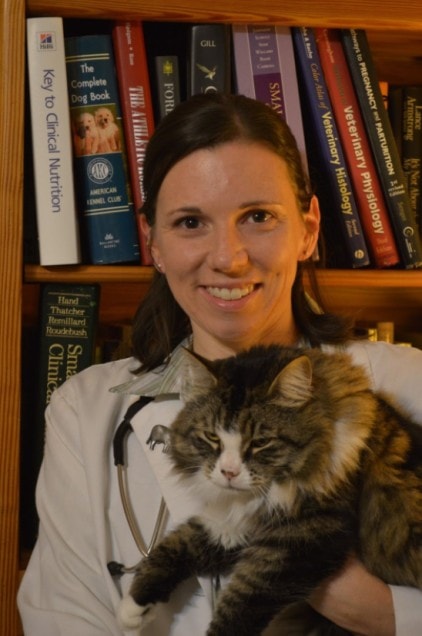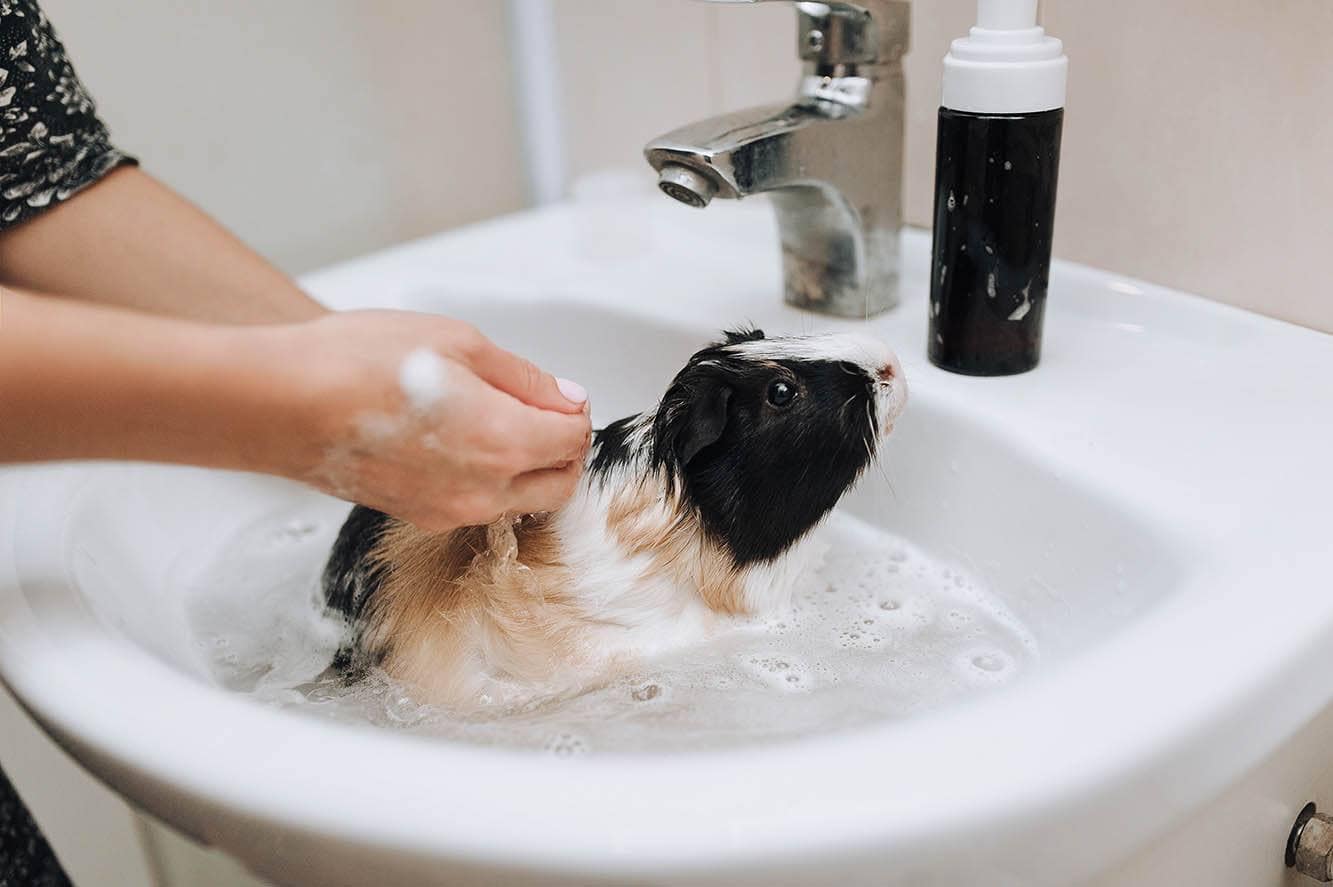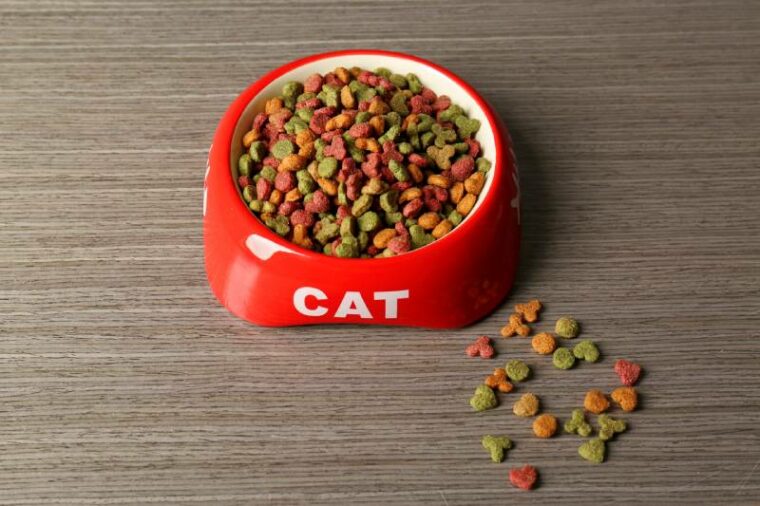
Click to Skip Ahead
Are you running low on guinea pig food and wondering if there’s anything in your cabinet they can eat instead? Or perhaps you have multiple pets and want to condense food purchases? If so, it’s a good idea to figure out if guinea pigs can eat the same thing as other domestic pets in the home.
If you’re wondering if guinea pigs can eat cat food, the answer is a strict no. Do not feed your guinea pig cat food. It shouldn’t hurt them if they eat a small piece by accident, but don’t intentionally feed it to them. Guinea pigs and cats require vastly different diets, as one is an obligate carnivore, and the other is a strict herbivore. Let’s learn more!
Cat Food Is Non-Toxic
We want to be specific- cat food isn’t toxic to guinea pigs but could cause digestive upset. It’s just not a diet that is complete and balanced for long-term feeding. If your guinea pig happens to grab a bite or two of cat food, chances are it won’t hurt them but do monitor them closely over the next 24 hours.
The problem with cat food arises when your guinea pig eats too much of it. This is because there are nutrients in cat food that are hard for a guinea pig to digest. Also, if a guinea pig regularly eats cat food, it will take the place of their regular diet and lead to an imbalance of nutrients and poor health.
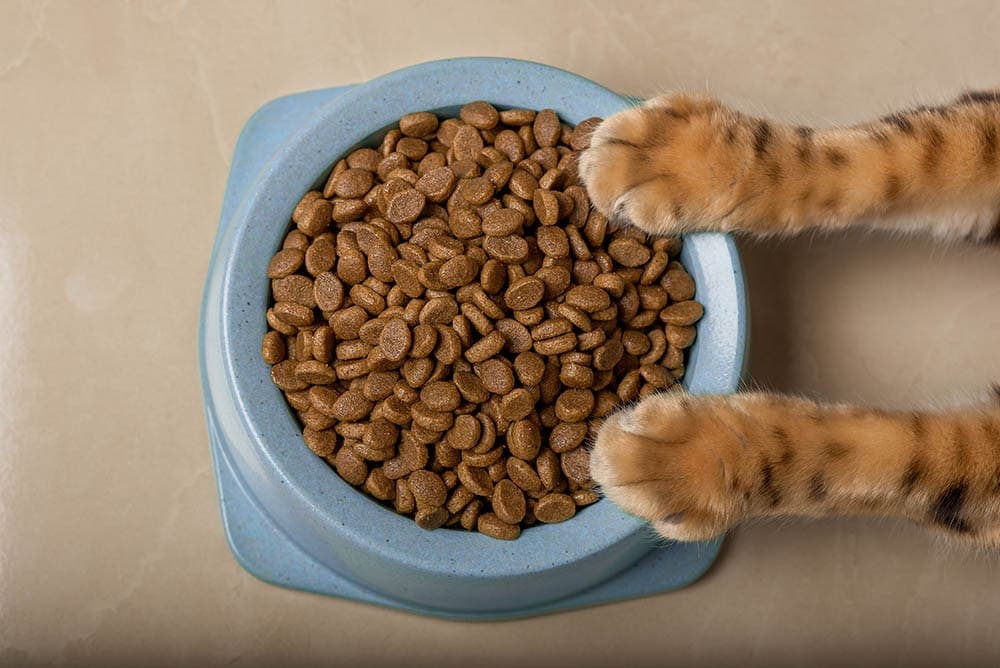
Guinea Pigs Should Never Eat Cat Food
Guinea pigs are strict vegetarians that cannot properly digest animal proteins. So, they should not eat wet or dry cat food.
Cats require a very high amount of animal content to stay healthy. Their commercial foods are very high in protein, usually ranging from 28% to 34% on the guaranteed analysis and moderately high in fat. If cats ate an herbivorous diet, it would deplete them of vital nutrients, creating a laundry list of health problems.
The same is true in reverse. Guinea pigs do not have the digestive systems necessary for breaking down animal proteins. Therefore, it will cause extra stress on the digestive system and distribute unnecessary or harmful excess proteins to the system.
Also, cat food sometimes contains a lot of unnatural dyes, preservatives, and some filler ingredients that are unhealthy for guinea pigs to consume. So, we’re saying that cat food is a “no” all the way around. Do not voluntarily give your guinea pig cat food.
What Is in Cat Food?
The first few ingredients of high-quality cat food are usually animal sources, including whole meat, meat meals, and animal fat. Then, it has a series of veggies, fruits, and grains with other supplemental additives and preservatives.
Each recipe will differ slightly. Some will have heavy preservatives, artificial additives, and dairy. Your guinea pig can only benefit from the grain, vegetable, and fruit content, but other ingredients severely overpower the kibble.

Will Guinea Pigs Eat Cat Food?
While guinea pigs have no internal drive to seek out animal-based proteins, they may sample some cat food out of curiosity. They may also be interested in cat food because of the other ingredients included, mainly the carbohydrate sources.
Guinea Pigs Cannot Digest Animal Protein
It is our responsibility as pet parents to provide a species-appropriate diet. The bottom line is that your guinea pig does not have the proper enzymes to digest and utilize animal proteins in their system—including dairy. Therefore, diets that are high in animal proteins, like cat food, can lead to several different issues.
Here are a few:
Digestive Upset
Guinea pigs have very sensitive digestive system that can get thrown off track. This offset can lead to intestinal troubles and upset stomachs. A few pieces of kibble might not drastically impact your guinea pig, but regular eating will certainly wreak havoc on the gut. This is because it can upset the gut’s natural gut flora, a process called dysbiosis. It can cause a series of side effects like diarrhea, constipation, bloating, and cramping.
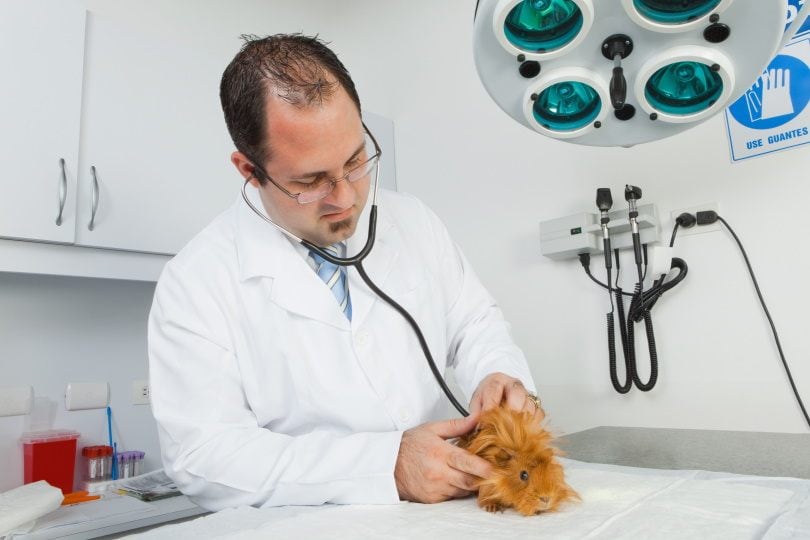
Obesity
Obesity can be a real problem in guinea pigs. It can significantly impact their overall health and decrease their lifespan. Since cat food is a high-fat meal, it can cause guinea pigs to pack on the pounds quickly if they eat it regularly.
Shortened Lifespan
Feeding your guinea pig an inappropriate diet can cause nutrient deficiencies and gut imbalances. Both of these can lead to premature death.
Proper Guinea Pig Diet
Guinea pigs in captivity require a commercial pellet that has all the nutrients they need to thrive. Guinea pig recipes on the market are specifically designed to match the health requirements of this species, and you should not substitute the diet for anything else. Other things your guinea pig needs in their diet include:
Hay
Guinea pigs also require a constant supply of hay to provide them with the right amount of fiber to keep their gut healthy. Since guinea pigs have ever-growing incisors, chewing up hay also helps to file the teeth and keep them at a reasonable length.
Rather than deriving their protein from animal sources, guinea pigs get all of the protein they need from plants. Oaten, meadow, or lucerne hay are all very high in plant protein and will nourish your piggy’s body.

Vitamin C
Like humans, guinea pigs do not make their own vitamin C and require it specifically from their diet. Many commercial foods have a source of vitamin C, but some lack this vital component. So, offering fresh food containing vitamin C will help their bodies absorb this necessary nutrient.
Fruits and Veggies
In addition to hay, vitamin C-packed veggies, and commercial food, you should also offer your piggy raw, delicious veggies and occasional fruits.
Always make sure to wash any veggies or fruits thoroughly to remove pesticides or chemicals that can harm your little one.
Conclusion
Guinea pigs are highly sensitive herbivores requiring a strict species-specific diet to thrive. Cat food was designed specifically for our feline companions and is in no way a proper dietary source for the guinea pig—or any herbivore, for that matter.
It would be best if you always feed your animals according to their species to prevent any detrimental health issues. Your guinea pig relies on you for proper care, and meat should be off the menu 100% of the time.
Featured Image Credit: Africa Studio, Shutterstock

